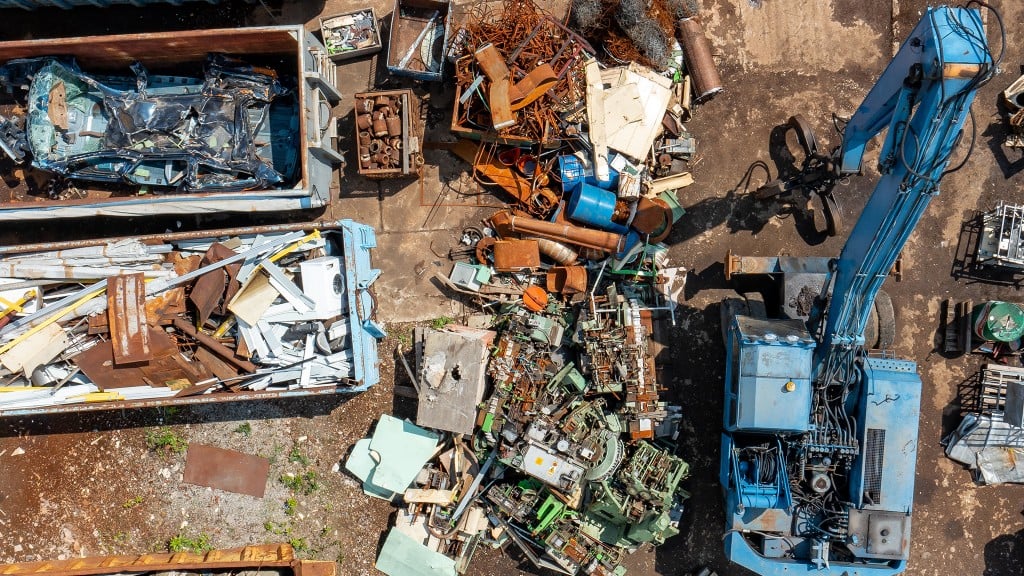In the fight against metal theft, focus of efforts needs to be on thieves, not recyclers
Success means working together

As metal prices rise, criminals increasingly target easy and obvious material. Utility providers are often the chosen victim, and thieves often inadvertently expose high-voltage power sources at theft locations. They can knock out power or phone capacity, including 911 services, to entire neighbourhoods, and delay public transportation. Metal thieves place themselves, utility employees, first responders and even the general public in danger when they attempt to burglarize telecommunications and electrical substations.
Unfortunately, scrap dealers are accustomed to bearing the brunt of the blame for the actions of these thieves. Lawmakers have frequently placed the onus on recyclers to curb metal theft. Proposed and existing provincial legislation requires recyclers to collect personal identification from sellers, prohibit cash transactions and enforce tag-and-hold laws. This sort-of legislation does not deter theft and it places an undue burden on recyclers, as it essentially requires them to assume a law enforcement role.
Metal theft is the problem, recyclers are not.
For more than a decade, CARI has opposed legislation aimed at scrap dealers and instead encouraged three actions to fight metal theft: protect the material, increase penalties for the perpetrators of these crimes and allocate appropriate law enforcement resources.
"To truly reduce metal theft, property must be secured and law enforcement must be given effective tools to prosecute offenders. We urge all stakeholders in the fight against metal theft to share best practices, improve communication across industries and work together. We are far stronger working together than we are trying to go it alone." Marie Binette.
In recent years, Canada's largest electricity provider, Hydro One, has implemented these very strategies with increasing, measurable success. The utility company explained how these strategies have dramatically improved their fight against metal theft at their recent Annual Metals Theft Seminar in Toronto. This event brings together participants from a range of industries affected by metal theft, including telecommunications and utility providers, first responders, law enforcement, security firms and recyclers.
Hydro One's speakers this year outlined how the company has dramatically reduced theft, since it launched an aggressive campaign to combat metal theft in 2014. Beginning with prevention, Hydro One taught employees how to better secure materials, and it began replacing copper groundings with a copper-clad alternative that has little scrap value. Alongside this material swap, signage was installed to inform thieves that the material they were targeting was not pure copper and had little value. To further protect their property, the company also invested in sophisticated surveillance cameras and security guards. Proper surveillance has increased the identification of thieves, with more than 40 perpetrators being incarcerated for their crimes.
Hydro One has been successful on a monetary front too, reducing financial losses through their Theft Recovery Program. The program employs a paralegal dedicated to metal theft cases. Over time, increased efforts to fight these cases in court have allowed their legal staff to educate prosecutors on the full impacts of metal theft. The Ontario Crown is increasingly willing to help the company seek restitution, and through the presentation of victim impact statements, the court has learned just how much monetary damage a minor theft can cause. Hydro One's court efforts thus far have recovered just over a million dollars in damages. These methods are clearly working. Other telecommunication and utility providers, policymakers and law enforcement should take note. These positive, promising results underscore what CARI has long been advocating for - focussing on the thieves and not the recyclers. To truly reduce metal theft, property must be secured and law enforcement must be given effective tools to prosecute offenders.
CARI will continue to promote this successful approach to combatting metal theft. We urge all stakeholders in this fight to share best practices, improve communication across industries and work together to take on this common threat. We are far stronger working together than we are trying to go it alone.
This article was originally published in the September, 2018 edition of Recycling Product News, Volume 26, Number 6.



